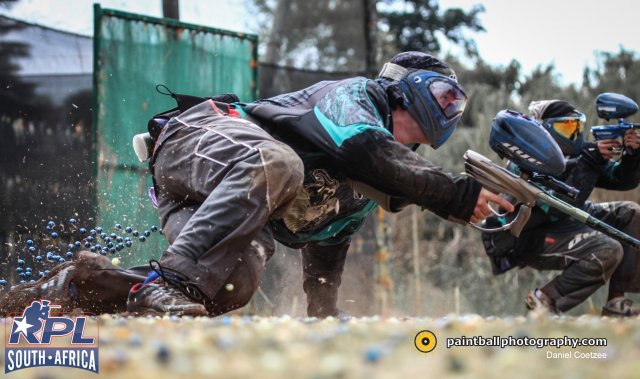
As some of you guys may know, I was the US editor of the UK based publication, PGi [Paintball Games International] unfortunately the recession pillaged our industry of all its magazines which ended up nudging paintball commentary and coverage toward the internet.
I’ve been involved in paintball for over 25 years and on the way, I’ve seen all there is to see, and then some. I’ve been lucky enough to win almost everything in pro paintball whilst playing in the US for two of America’s greatest ever teams [Aftershock and All Americans] and so I hope my experience can help some of you guys who might wanna learn something, as against just shooting fools.
On with the show …
The basics of paintball have hardly changed since its inception in the early 80’s inasmuch as we can reduce the game to its basic form by introducing the idea that one lot of players try to eliminate another lot of players, to win the game – even though the terrain has changed from woodland to arena, the goal remains largely unaltered.
So what has changed?
The answer is actually academic because even though the modern sport of paintball is a direct derivative of the woodland game; I’m afraid, that as much as nostalgia might like, there is nothing the modern sport of paintball can learn from the woodland game.
The reason for that?
Paintball has matured from a woodland game into an arena-based sport and even though both versions of paintball are competitive, modern paintball is a whole new ball game. If the modern player wants to improve, you have to prioritize training, and you cannot do that unless you have identified all of paintball’s components and their relevance.You may think these components are easy to pinpoint, and for the most part, you’d be right but there are a few red-herrings that continue to deceive players and teams. Things such as teamwork and communication … these certainly sound like viable contenders for primary concern but as I will show [hopefully] in this series of articles, they are but pretenders to the throne.
Teamwork is an illusion, leastwise the notion you can train it in isolation is an illusion, you cannot – it would be like chasing shadows, and for the most, pointless.
Of course, some people will respond with derision at this claim but these guys are wannabee experts who wouldn’t know what’s relevant if it head-butted them on the nose.
So what’s so illusory about teamwork?
It can only be learned indirectly.
And what I mean by that is, good teamwork is an emergent property of team members playing techno-ball…‘techno-ball’ is playing the game with the primary emphasis on shooting straight and playing tight, this is the technical side of our sport. Effective teamwork will emerge from players just playing. Sounds reasonable I suppose but you must realize the relationship between playing time and emergent teamwork.The better you are technically, the more successful you will become, the more successful you become, the greater the opportunity to develop effective teamwork.
Experience sculpts teamwork not specified practice.
One of the reasons Dynasty got so good, so quickly is because they were all great technicians of the game and their teamwork evolved around them ..When Dynasty hit the paintball scene, they were like a well-oiled machine slicing armbands off as they surgically dismembered their opponents game after game after game …
You have to remember, no two games are ever alike and therefore you cannot train for every instance of play which consequently renders practicing teamwork beyond the grasp of all players.
Most communication between players isn’t verbal at all, it’s visual.
Of course, other team members will call certain moves or warnings but players tend to see events such as eliminations, opponents moving, as well as one’s own team players grabbing real–estate as they move up-field. The progress of any team in a particular game is charted visually, and as such, is responded to on that basis – if you see one of your flank players tagged, you either plug the hole or alter your firing lane, or both. You will of course signal your player’s demise by shouting to the rest of your team but the primary information came visually.
That said, if you wish to refine your team-work, you must realize it’s an emergent property of playing … it happens as a response to certain events in the game; those events may be moves by your own players or indeed opponent’s moves, or even by a lull in the game … team-work is the real-time orchestration of moves by a team that optimize an attack or a defensive maneuver.
I will expand on this next month and we’ll take a more in-depth look at what underwrites our sport as we play.
